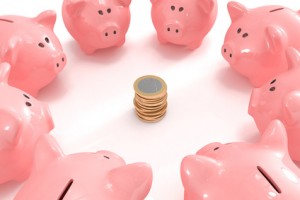Has your teen been bugging you about buying them the newest cell phone, or are you worried about how you’re going to afford the next iteration of technology that’s just around the corner? If you are concerned that you might fall behind in the keeping-up-with-the-Joneses world we live in, you can do yourself – and your children – a favor and stop worrying. According to a new study, it turns out that buying your way to happiness simply doesn’t work. If you want happiness, you have to have experiences.

The results of eight different studies were compiled to discover the true relationship between buying and experiencing with regard to happiness levels. It turns out that people feel happier when they have a life rich in experience rather than have all the material items they want. Experiences, such as vacations or even going to a movie, make people happier than people who made purchases of iPhones, computers, or other major purchases. In fact, people who prioritize experience see their happiness levels increase over time, while those who prioritize purchases see their happiness levels diminish over time.
Previous studies have provided the foundation upon which this research is built, and the relationship between experience and happiness is fairly well-established. This study goes further and demonstrates why this is the case:
- Buyer’s remorse. People have a tendency to buy beyond what they can afford and then regret it later, either when they don’t have the money for the things they need or when the newness of the item wears off.
- Experiences do not tend to diminish over time and are not easily comparable to other purchases, either ones people make themselves or ones others make that they wish they had, so the experiences stay relatively stable in peoples’ minds.
- When buying things, people often wait to see if someone else gets a better price or a better item or if some other store offers the same or better item at a lower price. They then feel badly about what they’ve purchased when that happens. This is not as easy to do with experiences.
- People are more likely to be jealous of another person’s material items than their experiences.
Some purchases do bring happiness, but it is still based on the experience. For example, when someone buys a music album, because they know they will be able to listen to it over and over again, it is more experiential than materialistic and therefore provides experience-based happiness.
The bottom line: the next time you are considering buying something, tuck the money away and plan a family vacation instead, and teach your kids to value experience over stuff.
While I have always believed that having material stuff won’t give you happiness, I do think that buying things is a part of having experiences (for example: you need to have money to go on vacations). Going to a concert or on a vacation to Europe would undoubtedly make people happier than buying a new phone or such, but those experiences still cost money, just like the phone does. It would be interesting to see if their is an experience-happiness connection. Do certain experiences make people happier than others, or is it more about the people you share the experiences with?